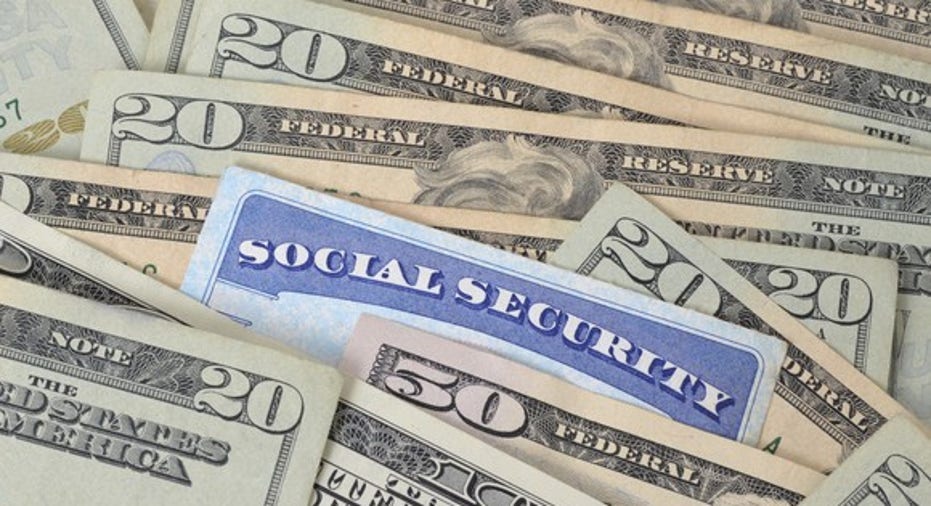The Best Age To Take Social Security

Image Source: Getty Images
You have the choice to start collecting Social Security anytime between the ages of 62 and 70, but is one age better than the others? In short, the answer depends on your individual circumstances. Since that's not a very helpful answer, here's what three of our contributors had to say to shed some light on the matter.
Bigger checks could be the way to go
Selena Maranjian: It won't work for everyone, as we all have different circumstances, but all things being equal, I'd argue that 70 is the best age to start collecting Social Security checks. Why? Because they'll be bigger. For every year after your full retirement age that you delay starting to collect, your ultimate monthly check will grow by about 8%. If your full retirement age is 67, as it is for those born in 1960 or later, waiting until age 70 will swell your checks by about 24%, a rather significant sum. If you were expecting to collect monthly checks of $2,000, you'll get $2,480 -- considerably more. Over 12 months, that would be $24,000 vs. $29,760.
Keep in mind, of course, that if you live an average-length life, delaying until age 70 won't make much difference, as the system is designed to be a wash for those with average life spans. (Remember, after all, that while starting earlier will give you smaller checks, you'll receive more of them.) Many of us have a solid chance of living extra long, though, and if you want to bet on that, positioning yourself to maximize your total benefits should you live a long time, 70 is the way to go. If you're the higher earner in your marriage, waiting will boost the value of the benefits that your spouse might benefit from, too. Married couples often have the luxury of starting one partner's benefits early and the other one's late.
As I said, though, 70 won't always work because you might lose your job earlier than you expected or might not have enough socked away in order to retire when you want without Social Security's help. For many people, collecting earlier is just fine. But if you can swing it, consider hanging in there.
As early as possible
Matt Frankel: While the best age to take Social Security varies depending on each person's particular situation, I think the strongest case can be made for 62.
First, Social Security is structured so that the average person will receive the same amount of inflation-adjusted benefits throughout their lifetime regardless of when they start collecting. In other words, it doesn't matter whether you claim at 62, 70, or anywhere in between -- you'll theoretically get the exact same amount of money.
Second, you can collect Social Security even if you're still working. While it's true that your Social Security benefits can be reduced before you reach full retirement age if you earn too much, any withheld benefits can permanently increase your benefits later on. And you can use the benefits you get while you're still working to add to your retirement nest egg.
Finally, there's no telling how long you'll live. You could live until 100, or you could die tomorrow. So claiming Social Security as early as possible is the safer play, guaranteeing that you'll get something.
While this is certainly an opinion-based question, it appears that many people agree with me. 62 is the most popular age for claiming Social Security, and I don't foresee that changing anytime soon.
68 is the best age for the average American man
Jason Hall: If you're looking to get a nice big check while also collecting as much total money from Social Security as you can before you die, 68 is an ideal age for men to start collecting benefits. Here's why, starting with a table:
Table source: Author.
The table above shows how Social Security's sliding scale of benefits depending on what age you first started collecting works out, with the green boxes indicating the future age when a particular claiming age generates the best return. As you can see, claiming Social Security at age 68 would net the most total income at ages 82 and 83, which would be near the average life expectancy of a man turning 66 this year. Furthermore, claiming at 68 would also mean you'd expect to collect the second-most money at age 81, 84, and 85, and the third-most at age 80.
To put it in the most morbid terms, the average American man living into his 60s is likely to die at one of the ages above. So filing at age 68 would give you the best likelihood of collecting the most money you can, while also netting you more years of retirement than waiting for age 70 and the biggest check. Call it hedging your bets.
With that said, Selena's suggestion of age 70 certainly makes sense for women, if for no other reason than they tend to outlive men by about two years on average.
The $15,834 Social Security bonus most retirees completely overlook If you're like most Americans, you're a few years (or more) behind on your retirement savings. But a handful of little-known "Social Security secrets" could help ensure a boost in your retirement income. For example: one easy trick could pay you as much as $15,834 more... each year! Once you learn how to maximize your Social Security benefits, we think you could retire confidently with the peace of mind we're all after.Simply click here to discover how to learn more about these strategies.
Try any of our Foolish newsletter services free for 30 days. We Fools may not all hold the same opinions, but we all believe that considering a diverse range of insights makes us better investors. The Motley Fool has a disclosure policy.



















